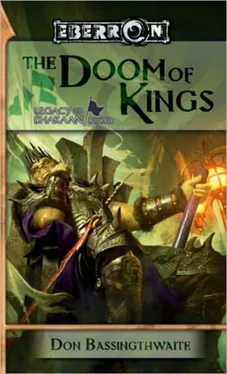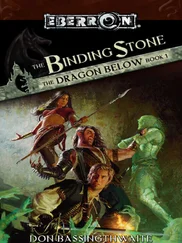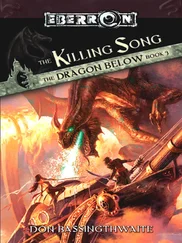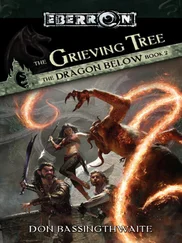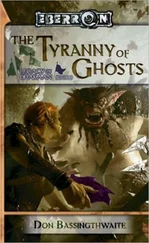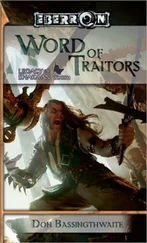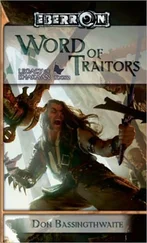Don Bassingthwaite - The doom of Kings
Здесь есть возможность читать онлайн «Don Bassingthwaite - The doom of Kings» весь текст электронной книги совершенно бесплатно (целиком полную версию без сокращений). В некоторых случаях можно слушать аудио, скачать через торрент в формате fb2 и присутствует краткое содержание. Жанр: Фэнтези, на английском языке. Описание произведения, (предисловие) а так же отзывы посетителей доступны на портале библиотеки ЛибКат.
- Название:The doom of Kings
- Автор:
- Жанр:
- Год:неизвестен
- ISBN:нет данных
- Рейтинг книги:5 / 5. Голосов: 1
-
Избранное:Добавить в избранное
- Отзывы:
-
Ваша оценка:
- 100
- 1
- 2
- 3
- 4
- 5
The doom of Kings: краткое содержание, описание и аннотация
Предлагаем к чтению аннотацию, описание, краткое содержание или предисловие (зависит от того, что написал сам автор книги «The doom of Kings»). Если вы не нашли необходимую информацию о книге — напишите в комментариях, мы постараемся отыскать её.
The doom of Kings — читать онлайн бесплатно полную книгу (весь текст) целиком
Ниже представлен текст книги, разбитый по страницам. Система сохранения места последней прочитанной страницы, позволяет с удобством читать онлайн бесплатно книгу «The doom of Kings», без необходимости каждый раз заново искать на чём Вы остановились. Поставьте закладку, и сможете в любой момент перейти на страницу, на которой закончили чтение.
Интервал:
Закладка:
She bent her head. “I would be grateful if you could arrange a meeting between Senen Dhakaan and I. There are things I would like to discuss with her.”
“But that she doesn’t seem interested in discussing with you.”
Vounn nodded.
Haruuc grunted. “I know that feeling too well. The Dhakaani clans could teach stubborn to the sea.” He rose. “Let’s go talk to Senen together.”
“Now?” asked Vounn in surprise.
“ ‘The smith who knows his iron doesn’t let it cool on the anvil,’” said Haruuc, quoting once more from Falko Gergus. “You’ve obviously waited too long on Senen already, and I’ve spent too much time looking at field positions that are out of date.” He motioned for Aruget, standing at the back of the room. “Run to Senen’s quarters and see if she is there.”
“Mazo.” Aruget left. He was back quickly. “She is in the hall of honor, lhesh.”
“I might have guessed,” Haruuc said. “Wait at the Deneith quarters, Aruget. Lady Vounn is safe with me.” He held out his arm and Vounn took it.
The hall of honor ran the full length of one of Khaar Mbar’ost’s upper floors. Vounn knew the hall-it served much the same function that gardens did in other royal palaces, giving courtiers and councilors a place to stroll and converse. To be honest, however, she could never have pictured goblins, hobgoblins, and bugbears wandering among potted plants and flower beds. The long hall seemed much more appropriate, with statues of famous heroes lining its walls and intricate windows of stained glass capping the distant ends. The windows showed scenes of famous battles, but the colorful panels could also pivot to allow a flow of air.
As she and Haruuc mounted the stairs to the hall, a voice drifted down from above. Vounn’s eyebrows rose. The murmur of speech typically filled the hall, sometimes punctuated by an exclamation or a curse, but always mingled. Now there was only one voice, a storyteller’s voice, chanting a tale of ancient heroism with all the zeal of a enthusiastic priest delivering a sermon to the faithful. She glanced at Haruuc.
He gave her a faint smile and his ears flicked. “That would be Senen,” he said. “The tales of the empire are a religion to the Dhakaani clans. I let her speak when she wishes. Her stories are good.”
They emerged into the hall. Some distance away, before one of the great stained glass windows, Senen stood in front of an audience that would have only sparsely filled the hall had it been spread out. Packed into one end of the hall, though, it made for an appreciable crowd. Curiously, it was one of the most diverse groups Vounn had ever seen in Khaar Mbar’ost: Warlords and councilors formed the core of the audience, but ordinary warriors and servants stood at the fringes as well.
Standing right next to Senen was Tariic, listening closely to the duur’kala’s story. Or at least appearing to listen closely. Vounn had seen junior members of House Deneith watching plays and performances with just such a slightly-too-rapt expression, attending events for the sake of being seen to attend events, conspicuously demonstrating an appreciation for cultural forms because it was expected of them. She smiled and looked to Haruuc, but the lhesh’s eyes were already on his nephew.
“He takes up the sword without testing the weight,” he said softly.
“Lhesh?” asked Vounn.
Haruuc’s ears flicked again, almost regretfully Vounn thought. He drew her to one side, almost into the shadow of one of the statues in the hall. No one had noticed the appearance of the lhesh-all of their attention was on Senen. “In many ways,” Haruuc said, “Tariic takes after his father, my brother Haluun. Stories, even the stories of a duur’kala, never really caught Haluun’s interest. Tariic is the same, but he makes a show of interest so that others see it.”
“Many people do the same thing, lhesh,” Vounn said. “They do what is expected of them.”
Haruuc looked down at her. “That is a difference in our ideas of honor, Vounn. To do what is expected, to do your duty and do it well-yes, that is a part of honor. That is muut, something you do for yourself. But it is no one’s duty to appreciate a story. Appreciating a story, to be seen to appreciate a story, is a sign of personal sophistication. When others see it, they may think of you as having honor, but it is atcha, honor achieved through deeds.”
“Is that wrong?”
“No.” Haruuc shook his head. “There is atcha in more than fighting, and many people seek out its lower forms. Honor begets honor. But for some…” He spread his hands. “Tariic understands muut, but he is drawn to atcha.”
“Atcha shouldn’t be forced,” said Vounn, trying to grasp what Haruuc’s meaning. Muut and atcha weren’t new concepts to her, but no one had tried before to explain them in quite the same terms.
“It is more complicated than that, but you begin to understand,” Haruuc said. His ears sagged slightly, then twitched and rose again. “But I insult Tariic. He is a good man, and the lure of atcha is hard to resist. Without ambition, there would be no Darguun. Come-Senen is finishing her story. We will talk with her.”
In front of the window, Senen pronounced the formulaic ending to hobgoblin stories-Raat shan gath’kal dor-and her audience broke out in applause. As the applause died down and the audience drifted apart, Haruuc escorted Vounn forward.
Bowing heads made a wave as the lhesh was finally seen and recognized. Tariic, offering his personal appreciation to Senen, turned with a start. “Uncle!”
Senen’s response was more composed. She bent her head. “Saa’atcha, lhesh,” She glanced at Vounn and her eyes went flat.
Haruuc seemed to take no notice. “Saa, Senen Dhakaan. Nephew.” He nodded to Senen. “An excellent story. Ta muut.”
The ambassador of the Kech Volaar twitched her ears in acknowledgment. “I will leave you to speak with Tariic,” she said.
“Actually, Senen, we came looking for you,” Haruuc said in a tone that was both casual and commanding. “Lady Vounn expressed an interest in speaking with you. I would like to think that two of my greatest allies-the Kech Volaar and House Deneith-might come to be friends.”
Senen’s ears pulled back and she bared her teeth. “Lhesh, she wants to hire us and nothing more.”
Vounn made a swift decision-if the duur’kala could be blunt, so could she. “I do want to hire you,” she said. “The military discipline of the Dhakaani clans is legendary. Deneith and the Kech Volaar would both find profit in selling your service.”
Surprise and perhaps outrage at such honesty flickered in Senen’s face, silencing her for a moment. Vounn stepped into the breach she had made. “But I’ve come to see that renowned discipline before that can happen, Deneith needs to know the Kech Volaar. How can we understand your people without understanding your traditions?” She bent her head to Senen. “Will you tell me your stories, Senen Dhakaan? Will you let me visit Volaar Draal and show me the glories of the Empire of Dhakaan that the Kech Volaar keep alive?”
“Volaar Draal is not open for casual visitors,” Senen said slowly, as if trying to find refuge in the words. “Especially chaat’oor.”
Quick as thought, Vounn turned the rejection around on her. “Then you must visit House Deneith in Karrlakton to see our memorials and understand our traditions.” She raised her head. “The Mark of Sentinel was the first of the dragonmarks to manifest in humans, and long before Deneith was a House, we were proud warlords. Our history isn’t so old as yours, but it is good. I offer you the chance to learn our story.”
“And a generous offer it is, Senen,” said Haruuc. “An invitation to the seat of power of a dragonmarked house is not extended lightly.” His mouth was curved in a barely suppressed smile, and Vounn knew he had followed her strategy: the exchange of stories, irresistible to a duur’kala, between two groups with a common interest in the accomplishments of a martial past.
Читать дальшеИнтервал:
Закладка:
Похожие книги на «The doom of Kings»
Представляем Вашему вниманию похожие книги на «The doom of Kings» списком для выбора. Мы отобрали схожую по названию и смыслу литературу в надежде предоставить читателям больше вариантов отыскать новые, интересные, ещё непрочитанные произведения.
Обсуждение, отзывы о книге «The doom of Kings» и просто собственные мнения читателей. Оставьте ваши комментарии, напишите, что Вы думаете о произведении, его смысле или главных героях. Укажите что конкретно понравилось, а что нет, и почему Вы так считаете.
